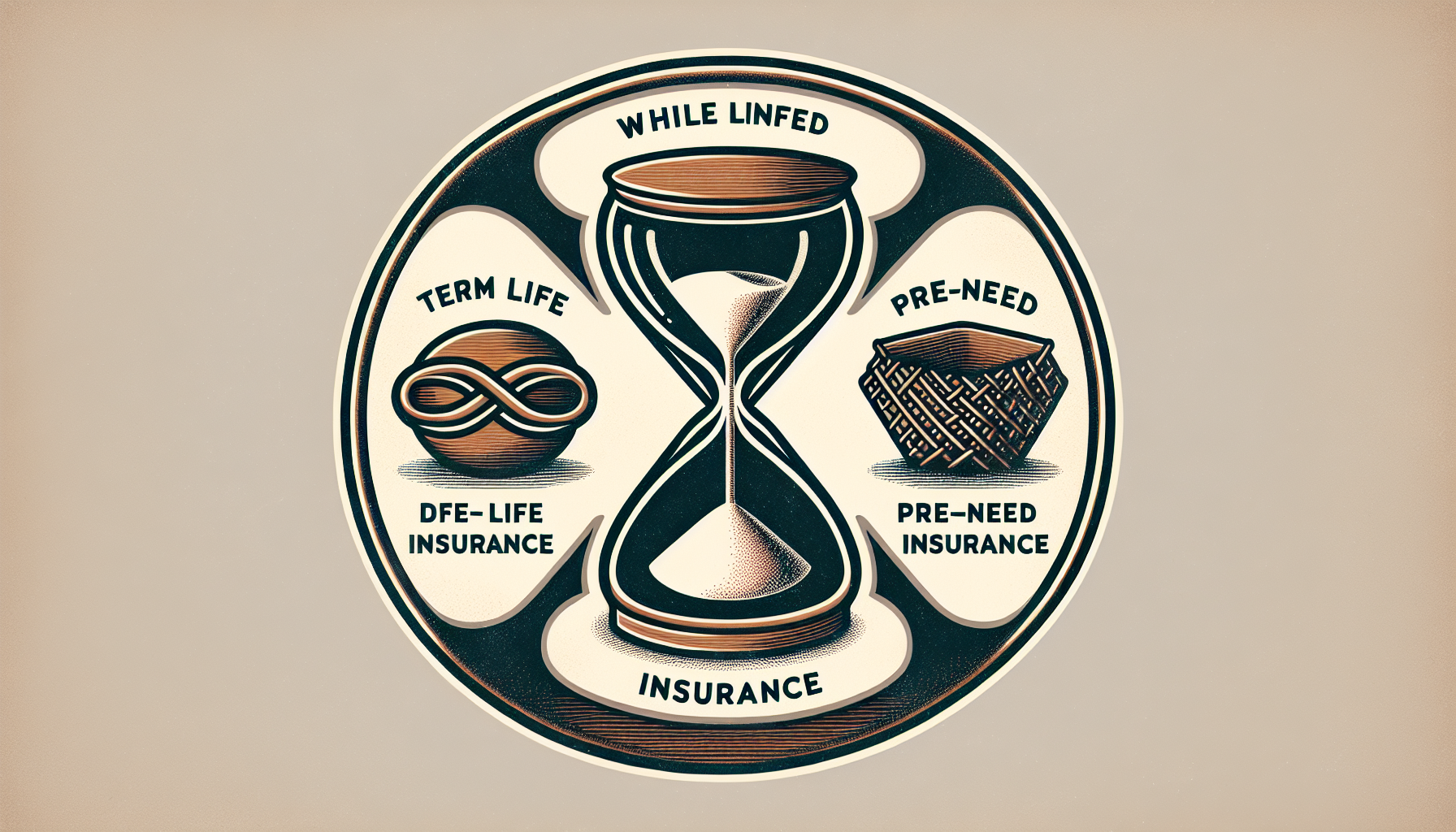Top Burial Insurance Options: Find Your Best Match in 2024
Preparing for end-of-life expenses? Burial insurance can help. This article breaks down the top burial insurance options in 2024, offering peace of mind without a financial burden on your family.
Key Takeaways
- Burial insurance, also known as final expense insurance, is designed to cover funeral costs and associated end-of-life expenses, with coverage typically ranging from $1,000 to $50,000 and does not require a medical exam.
- Leading providers such as AARP/New York Life, State Farm, and Mutual of Omaha offer burial insurance with varying policy options, eligibility ages, and coverage amounts, emphasizing the need for consumers to compare providers for the best match.
- When choosing burial insurance, it’s important to consider factors like estimated funeral expenses, budget constraints, and policy features such as guaranteed acceptance and cash value accumulation, as well as weighing the pros and cons against other life insurance alternatives.
Understanding Burial Insurance

Burial insurance, also commonly known as final expense insurance, is a specific type of life insurance policy designed to cover end-of-life expenses. These expenses can include funeral costs, outstanding debts, or any other associated expenses. It’s a financial safety net, providing peace of mind that your loved ones won’t be left grappling with these costs in the wake of your passing.
Notably, burial insurance differs from traditional life insurance policies. While traditional life insurance offers a death benefit that can be used for any purpose, burial insurance is specifically designed to cover funeral and burial services. Could burial insurance be the right choice for you? Explore further to understand the intricacies of burial insurance and its operation.
What is Burial Insurance?
Burial insurance, otherwise known as final expense insurance or funeral insurance, is a type of whole life insurance policy that primarily covers expenses associated with an individual’s funeral and final arrangements. This can include costs such as:
- the memorial service
- casket
- urn
- burial
- cremation
- any outstanding debts.
The coverage amount of a burial insurance policy typically ranges from $1,000 to $50,000. This is informed by the average funeral cost, which was approximately $7,848 in 2021, thereby informing typical policy amounts between $7,000 and $10,000. In addition to covering funeral costs, burial insurance can also help manage financial matters such as credit card debt and medical bills left by the deceased.
How Does Burial Insurance Work?
The process of applying for burial insurance is fairly simple. Here are the steps:
- Choose your desired coverage amount.
- Name your beneficiary.
- Apply for burial insurance. In many cases, you can be accepted without the need for a medical exam.
- Rates are typically determined based on factors such as your age and gender.
Once a claim is filed and a death certificate is provided, beneficiaries are guaranteed a payout of the higher of the total premiums paid or the original insured amount. Some policies even offer cash value accumulation over time.
There are four distinct types of burial insurance based on underwriting:
- Level Benefit
- Graded Benefit
- Modified Benefit
- Guaranteed Issue
Each varies in cost implications and coverage conditions.
Top Burial Insurance Providers

In the selection of a burial insurance policy, considering the array of providers and their offerings is imperative. Leading burial insurance providers include AARP/New York Life, State Farm, and Mutual of Omaha, each offering different policy options and benefits.
Here, we unpack the offerings of these providers, enhancing your understanding of each one’s unique propositions.
AARP/New York Life
AARP, in collaboration with New York Life, offers a Guaranteed Acceptance Life Insurance policy. This policy provides coverage of up to $25,000 and is available to AARP members aged 50 to 80. The eligibility age range in New York has been adjusted to 50 to 75. This change will allow more people to qualify for the program. Notably, eligibility for AARP burial insurance extends to members’ spouses.
AARP’s life insurance policies, including burial insurance, are underwritten by New York Life Insurance, one of the reputable life insurance companies with a strong reputation for customer satisfaction and reliability. It has received fewer complaints than expected for its size over a three-year period, demonstrating its commitment to customer satisfaction.
State Farm
State Farm is another notable provider in the realm of burial insurance. In New York, they provide Guaranteed Issue Final Expense Life Insurance, which is also known as $10,000 Whole Life. This type of insurance is available for purchase. The eligibility age for State Farm’s burial insurance policy ranges from 45 to 80 years old, except in New York where it is 50 to 75 years old.
However, it’s worth noting that State Farm does not offer burial insurance policies to new customers in Massachusetts or Rhode Island. Despite this restriction, State Farm is recognized for its reliable customer service and comprehensive policy offerings.
Mutual of Omaha
Mutual of Omaha offers a burial insurance policy named Guaranteed Whole Life Insurance. Typically, the age range for eligibility for Mutual of Omaha’s burial insurance is 50 to 85 years old, but in New York, this range is narrowed to 50 to 75 years old.
The coverage amounts for Mutual of Omaha’s burial insurance range from $2,000 to $25,000, although in Washington, the minimum coverage amount is slightly higher at $5,000. These varying coverage amounts provide flexibility for individuals with different needs and financial capabilities.
Evaluating Burial Insurance Policies

The selection of a burial insurance policy requires consideration of numerous factors. These include your estimated funeral expenses, budget constraints, and specific policy requirements. Comparing multiple burial insurance providers and their policy propositions, while weighing them against your financial resources, is key.
Engaging the expertise of a licensed insurance agent who specializes in funeral insurance can also prove beneficial. They can provide personalized assistance in selecting suitable policy options, ensuring that you make an informed decision that best suits your needs.
Coverage Amount
The appropriate coverage amount for burial insurance is influenced by numerous factors, including:
- The policyholder’s age
- Health status
- Desired coverage amount
- Funeral costs
- Outstanding debts
These factors should be taken into consideration when determining the appropriate coverage amount for burial insurance.
The cost of a funeral with a viewing and burial is currently the national median of $7,848, increasing to $9,420 if a vault is included. The cost of a cremation with a cremation casket is typically around $6,970, making it an affordable option for many families. This median amount reflects the average expense for this type of service. These costs inform the typical policy amounts, which generally fall between $7,000 and $10,000.
Different types of burial insurance plans, like Level Benefit, Graded Benefit, and Modified Benefit plans, offer different structures of payouts that can affect the overall benefit received.
Premiums and Payment Options
Factors such as policy type, applicant’s age, gender, and policy size influence the premiums for funeral insurance. Funeral insurance policies often provide fixed premium rates, offering consistent and predictable payment schedules. However, policies without a medical exam typically use age rating, where premiums increase as the policyholder ages. This underscores the financial advantage of securing insurance earlier in life.
Optional stepped premiums, recalculated annually, and capped premiums, which offer a monetary or age limit after which payments cease, are also available for burial insurance payments. Monthly payments are a common form of payment for funeral insurance premiums, catering to budgeting preferences and financial planning needs of policyholders.
Policy Features and Benefits
Various features and benefits come with burial insurance policies, which can make them appealing to potential policyholders. One of these is guaranteed acceptance, ensuring policy issuance without medical exams or health questions – a significant advantage for those with pre-existing conditions.
Whole life insurance policies, including those offered by AARP, come with the following benefits:
- Level premiums
- A benefit that lasts a lifetime, providing both insurance coverage and peace of mind
- Cash value accumulation feature that enables policyholders to have a fund from which they can withdraw or borrow
- Tax-deferred growth at a fixed rate, providing a tax-advantaged benefit to the policyholder.
-
Pros and Cons of Burial Insurance

As with any financial product, burial insurance carries both advantages and disadvantages. Understanding these can help potential policyholders make an informed decision about whether burial insurance is the right fit for their needs.
Benefits of Burial Insurance
One of the key benefits of burial insurance is its simplicity and accessibility. It does not require a medical exam, making it accessible to those with pre-existing conditions. Moreover, these policies can significantly ease the financial burden on families by covering various funeral and burial expenses, ensuring that loved ones are not burdened with these costs.
Another benefit of burial insurance is its cost-effectiveness. It locks in a premium that remains unchanged over time, and getting a plan early can be more affordable as costs increase with age.
Drawbacks of Burial Insurance
However, burial insurance policies also have their drawbacks. For one, these policies typically offer smaller benefit amounts that are specifically tailored for covering final arrangements. They are not designed to address broader financial needs.
Additionally, unlike more comprehensive life insurance policies, burial insurance does not offer income replacement. This could leave beneficiaries without adequate financial support following the policyholder’s death.
Alternatives to Burial Insurance

Although burial insurance may suit some individuals, considering alternatives is worthwhile. Other options include term life insurance, whole life insurance, and pre-need insurance. Each of these offers different levels of coverage and benefits that may better suit your needs.
Term Life Insurance
Term life insurance provides coverage for a specified term, such as 10, 20, or 30 years. This type of insurance can be more affordable than whole life insurance as it only covers a limited period. However, if the policyholder outlives the term, the coverage expires without benefits, potentially leaving no provision for final expenses.
One significant drawback is that should the policyholder seek to renew the term life insurance, the cost may significantly increase with age. On the other hand, policyholders may have the option to convert their term life insurance to a whole life or other permanent plan for extended coverage.
Whole Life Insurance
Whole life insurance, also known as permanent life insurance, provides lifelong coverage as long as premiums are paid. Beneficiaries are assured a fixed benefit, receiving a guaranteed sum of money upon the policyholder’s death. Premiums for whole life insurance are fixed and do not increase over time, offering long-term affordability.
Whole life insurance can provide coverage for:
- A family’s lifestyle
- Income replacement
- Debts
- College tuition
- Spouse’s retirement
- Final expenses
This makes it a more comprehensive solution compared to burial insurance.
Pre-Need Insurance
Pre-need insurance is a type of funeral plan sold by licensed pre-need specialists. Its primary function is to cover funeral costs and final expenses. This type of insurance allows individuals to pay for their funeral services in advance, thereby reducing the financial burden on the family when the time comes.
While pre-need insurance is a viable alternative to burial insurance, it’s crucial to consider the financial stability and reputation of the funeral home offering the plan. This ensures that the services will be available when needed.
Summary
In conclusion, burial insurance is a viable financial planning tool that eases the burden of end-of-life expenses on loved ones. While it comes with its advantages and drawbacks, the key lies in understanding your personal needs and financial circumstances. By comparing various policy options, assessing coverage amounts, evaluating premiums, and considering alternatives, you can ensure a fitting choice that leaves you and your loved ones in a financially secure position.
Frequently Asked Questions
How does life insurance contribute to estate liquidity?
Life insurance contributes to estate liquidity by providing immediate funds upon the insured's death, which can cover funeral expenses, debts, and estate taxes, preventing the need to liquidate other assets.
Can life insurance be used to provide for family members who are not involved in a family business?
Yes, life insurance can provide financial support for family members not involved in a family business by offering death benefit proceeds as an inheritance. This ensures equitable asset distribution for all family members.
What should I consider when selecting beneficiaries for my life insurance policy?
Consider the financial needs, your relationship with them, potential tax implications, and legal aspects when selecting beneficiaries for your life insurance policy. Regularly review and update your designations to reflect life changes.
How can I fund life insurance premiums without incurring gift taxes?
You can fund life insurance premiums without incurring gift taxes by utilizing the annual gift exclusion, which permits tax-free gifts for premium payments up to a certain amount per recipient each year. It's a straightforward way to cover the premiums without facing gift taxes.
Why is it important to work with professionals in estate planning and life insurance?
It's crucial to work with professionals in estate planning and life insurance, such as estate planning attorneys and financial advisors, as they offer expert guidance on legal, financial, and tax aspects of your estate plan, ensuring it aligns with laws and your specific needs.











